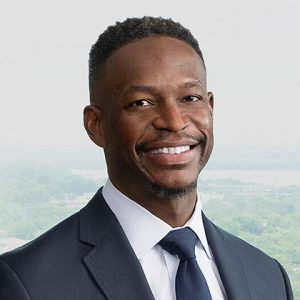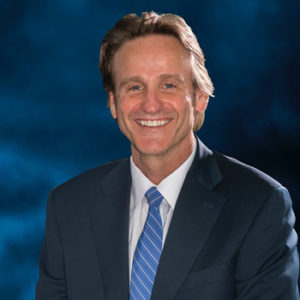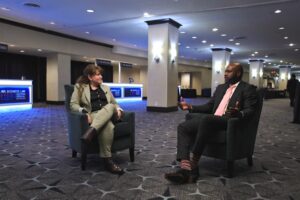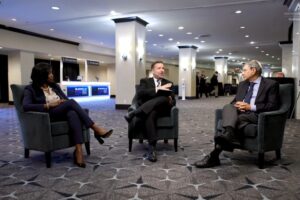CURRENT MONTH (December 2022)
Delaware Supreme Court Finds General Partner Acted in Good Faith Based on Reliance on Legal Opinions as a Condition Precedent for the Exercise of Call Right
Boardwalk Pipeline Partners, LP v. Bandera Master Fund LP, 2022 WL 17750348 (Delaware Supreme Court)
By Tarik J. Haskins, Partner, Morris Nichols Arsht & Tunnell
In a recent opinion, the Delaware Supreme Court reversed a Court of Chancery decision that found that a general partner of a master limited partnership (the “Partnership”) breached the Partnership’s limited partnership agreement (the “Partnership Agreement”) when the general partner exercised its contractual call right, which resulted in a monetary damages award of almost $700 million dollars. Under the terms of the Partnership Agreement the general partner of the Partnership (the “General Partner”) possessed a call right entitling the General Partner to purchase the Partnership’s limited partnerships units that the General Partner and its affiliates did not own if certain conditions precedent were satisfied. The plaintiffs alleged that the following conditions precedent were not satisfied: (i) obtaining a legal opinion that “the Partnership’s status as an association not taxable as a corporation and not otherwise subject to an entity-level tax for federal, state or local income tax purposes has or will reasonably likely in the future have a material adverse effect on the maximum applicable rate that can be charged to customers” (the “Opinion Condition”) and (ii) a determination by the General Partner that the legal opinion is acceptable to the General Partner. The Court of Chancery agreed with the plaintiffs, finding that the General Partner improperly exercised the call right because the opinion the General Partner received from Baker Botts to satisfy the Opinion Condition was not issued in good faith and the wrong entity determined the acceptability of the opinion. In addition, the Court of Chancery found that the General Partner was not exculpated from damages under the Partnership Agreement.
On appeal, the Partnership, the General Partner, and other defendants (collectively, the “Boardwalk Parties”) argued that the Court of Chancery erred when it determined that (i) the sole member of the limited liability company General Partner was not the correct decision-maker to determine the acceptability of the opinion, and (ii) that the General Partner was not entitled to exculpation from damages under the terms of the Partnership Agreement.
The majority opinion agreed with the Boardwalk Parties, finding that the sole member of the General Partner was the correct decision-maker to determine the acceptability of the opinion. The majority opinion reasoned that based upon the express terms of the Partnership Agreement and the General Partner’s limited liability company agreement, the authority to determine the acceptability of the opinion was vested in the sole member of the General Partner.
The majority opinion also found that a contractual conclusive presumption set forth in the Partnership Agreement protected the General Partner from liability. The Partnership Agreement included a provision that provided that the General Partner will be conclusively presumed to have acted in good faith if it relies on advice of counsel. The majority opinion found that the conclusive presumption applied based on the General Partner’s reliance on an opinion it received from Skadden Arps. The Skadden Arps opinion determined that (i) the sole member of the General Partner was the correct decision-maker to determine the acceptability of the opinion and (ii) it was reasonable for the sole member of the General Partner to find that the Baker Botts opinion was acceptable, as such term was used in the Partnership Agreement. Based on the conclusive presumption set forth in the Partnership Agreement, the majority opinion concluded that the General Partner is presumed to have acted in good faith and is therefore immune from damages. The majority opinion did not address other arguments made by the Boardwalk Parties, including whether the Baker Botts opinion was issued in bad faith. The Delaware Supreme Court remanded the case for further proceedings consistent with its opinion.
In a concurring opinion, the concurring judges agreed with the majority opinion’s judgment but determined that the record supports the conclusion that the Baker Botts opinion was issued in good faith and, at a minimum, was not rendered in bad faith. The concurring opinion noted that the trial court’s determination that the Baker Botts opinion was not rendered in good faith “has the potential to fundamentally alter the legal environment in which opinions of counsel are prepared.” The concurring opinion stated that the trial court misapplied existing law with respect to the standard of review of legal opinions. The concurring opinion urged that the existing standard stated in Williams Cos. Inc. v. Energy Transfer Equity LP, 2016 WL 3576682 (Del. Ch. June 24, 2016), provided the correct standard of review, which required a reviewing court to apply a deferential standard that focused on the good faith of counsel as opposed to the legal opinion itself. Thus, the concurring opinion is instructive for practitioners who deliver legal opinions.
UK Supreme Court Affirms “Creditor Duty” and Clarifies Personal Liability Risk for Directors Following Insolvency
By Sam Furse and Will Gunston, Osborne Clarke LLP
In October 2022, the UK Supreme Court handed down its long-awaited judgment in BTI 2014 LLC v Sequana SA.[1] The judgment is of significant importance to company directors because it helps clarify the circumstances when a director may be at risk of becoming personally liable to contribute toward the assets of the company following an insolvency. The judgment affirms the existence of the so-called “creditor duty” and sets out its scope and operation. The creditor duty, owed to the company rather than individual creditors, developed under common law and was codified under section 172(3) of the Companies Act 2006 (the “Act”).
When a company is solvent, the Act requires directors to act in a way which they consider, in good faith, would most likely promote the success of the company for the benefit of its members as a whole. However, where a company is (i) bordering on insolvency (i.e., insolvency is imminent and inevitable); (ii) actually insolvent; or (iii) probably going to enter insolvent liquidation or administration, Sequana has confirmed that the creditor duty is engaged.
The creditor duty requires directors to balance the interests of its members against those of the company’s general body of creditors. Where a company inches closer toward a formal insolvency process, directors are now required to give increasing weight to creditor interests. The Supreme Court considered that the prominence directors should attach to the interests of creditors increases alongside insolvency risk on a sliding scale, and where insolvent liquidation or administration becomes inevitable, such interests are paramount, with members’ interests no longer of relevance.
While the practical consequences of Sequana are fact-specific, directors concerned about solvency should, among other things, continue to ensure that they seek early professional advice; obtain regular and up-to-date financial information; hold regular board meetings; and minute decision-making.
Delaware Court Reaffirms the Requirements to Bring a Successful Caremark Claim
By Mark D. Hobson, Partner, Halloran Farkas + Kittila LLP
A recent case before the Delaware Court of Chancery—Construction Industry Laborers Pension Fund v. Bingle (Del Ch. Sept. 6, 2022) (the “SolarWinds case”)—reaffirmed the requirements plaintiffs need to satisfy in order to successfully prevail, and the difficulty of prevailing, under so-called Caremark claims. These types of claims originate from a 1996 Delaware Court of Chancery decision (In re Caremark International Inc. Derivative Litigation, 698 A.2d 959 (Del. Ch. 1996)) and involve a two-prong test, which former Chief Justice Leo E. Strine, Jr. of the Delaware Supreme Court summarized in a 2019 decision (Marchand v. Barnhill, 212 A.3d 805, 821 (2019)) to be an obligation of directors to make a “good faith effort to implement an oversight system and then monitor it.” Plaintiffs asserting Caremark claims must plead sufficient facts with particularity as to the directors’ liability for breach of their duty of loyalty based on their failure to make a good faith effort to exercise their duty of care in the oversight context.
The SolarWinds case centered around SolarWinds Corporation (the “Company”), a Delaware corporation providing information technology infrastructure and management software to customers on its platform. The Company went public in 2018 via an IPO and had established two subcommittees of the Company’s board of directors (the “Board”): an Audit Committee and a Nominating and Corporate Governance Committee (the “NCG Committee”). After the IPO, the Board delegated cybersecurity oversight to the Audit Committee and tasked it with discussing with management any major financial risks to which the Company was exposed, including cyber and data security. The NCG Committee was responsible for oversight responsibility for corporate governance risks, and its charter was amended in 2019 to require its members to discuss with management any major risk to which the Company was exposed, including cyber and data security. The Company also identified the NCG Committee in numerous proxy statements as being responsible for monitoring and assessing the Company’s corporate governance guidelines, policies, plans, and programs relating to cyber and data security.
In 2020 Russian hackers penetrated the Company’s systems and inserted malware that eventually allowed the hackers to access the systems of approximately 18,000 of the Company’s clients (the “Sunburst Attack”), resulting in a diminishment of the Company’s value and a deleterious effect on its financial metrics. During the twenty-six-month period between the IPO and the Sunburst Attack, neither the Audit Committee nor the NCG Committee reported to the Board any cybersecurity risk affecting the Company.
The plaintiffs in the SolarWinds case were a group of shareholders of the Company, and the defendants were members of the Board at the time of the Sunburst Attack, as well as the Company itself, as a nominal defendant. On November 1, 2021, the plaintiffs filed a derivative action with the Delaware Court of Chancery, seeking to hold the defendants liable for damages for failing to monitor the Company and its operations in a manner that would have prevented the Sunburst Attack. In January 2022, the defendants filed three motions to dismiss that derivative action. The SolarWinds case addressed the defendants’ motions to dismiss.
Based on the record, Vice Chancellor Sam Glasscock III determined that the plaintiffs’ complaint did not demonstrate that the two committees were sham committees but rather showed that they were functioning committees. The court also concluded that the two committees’ failure to report to the Board any cybersecurity risk for twenty-six months did not rise to the level of bad faith on the part of the Board, especially given the Company’s recent transition to a public company and the emergence of the Covid-19 pandemic. Ultimately, the court granted the defendants’ motions to dismiss the plaintiffs’ complaint after concluding that the plaintiffs had not only failed to demonstrate that the Company violated any positive law but they also failed to plead with particularity sufficient facts to establish that the defendant directors had the requisite scienter for a Caremark claim. Furthermore, Vice Chancellor Glasscock concluded that the plaintiffs’ demand-futility argument also failed “for want of particularized pleading.”
[2022] UKSC 25 ↑







